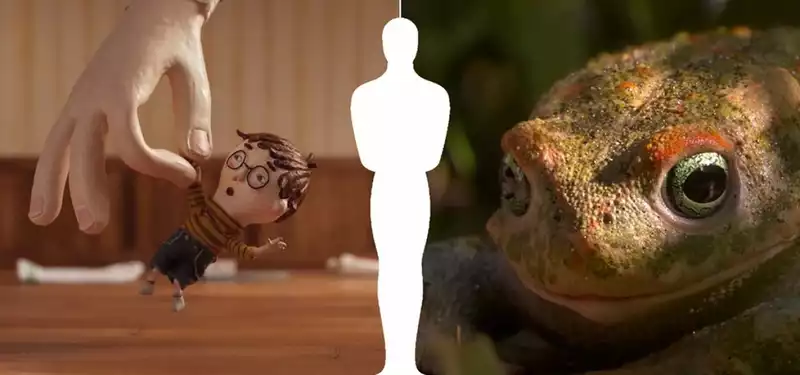Mar 1, 2018
How did the French company Miyu distribute the Academy Award nominated films "Negative Space" and "Garden Party" in France?
The French media has been abuzz since the Oscar nominations were announced.
Most notable are the nominations for Faces Places, a documentary by legendary director Agnès Varda and contemporary artist JR, and Alexandre Desplat, who wrote the music for The Shape of Water. Of the five animated short films Two are little-noticed French productions: "Garden Party" and "Negative Space". Needless to say, no one has noticed that these two films are distributed by the same French company, Mille.
Founded in 2009 by Emmanuel-Alain Reynal, Mille is a production company specializing in animated short films, and has worked with Ugo Bienvenu and Kevin Manasch on "Maman" and Michele and Uri Cranot on "Nothing Happens. He has also developed animated feature films and series projects.
Based in Paris, Angoulême, and Valence, Mille recently expanded her activities into distribution by forming a business partnership with Arles' Save Films, founded by Ruth Grosjean in 2014. She now handles Mille's distribution department.
She of course handles the distribution of her own company's films, but she also works with other independent producers with whom she feels close, such as Ikki Films, led by Edwina Liard and Nydia Santiago, producers of Negative Space She has also worked with.
Grosjean also has strong ties to animation schools, having been employed for many years by Reca, a network of top French animation schools. This is how she came up with the idea of distributing the graduation films of Gobelins, Ecole Estienne, Isard Digital, Art FEx, and Mopa, which produced "Garden Party". She is now expanding outside France and recently began distributing films from the top Danish school, Animation Workshop.
When asked about the distribution of animated shorts in France, Grosjean responds bluntly: "In our country, there is no distribution of feature films. In our country, there is no market for short films like there is for feature films, no real business model. The revenues are too small.
Revenue may be inadequate, but it does exist. One source of revenue is film distribution, which has long been a trusted source of income. Film distributors create children's selections of short films. Some companies specialize in producing such lineups for movie theaters and can be very successful.
Folimage and Films du Nord produce their own shorts for cinemas, but most programs consist of graduation projects or professional films on a single theme. Grosjean describes the difficulty of composing a program of short films. Even a super cute story with bunnies and mice can turn out to be a whammy and dirty at the end."
Short films for adults are sometimes shown in cinemas before feature films, and in 1987, a special program called "L'Extra Court" was created by Agence du court-métrage, a non-profit organization that promotes short films.
It is also broadcast, unfortunately, late at night on both public (France 2, France 3, Arte) and private channels (Canal+, Ciné+) in France. Says Grosjean. 'Arte's short film department, Court-circuit, puts their films on their website, where they can be seen for a year (only in France and Germany).' They do not hesitate to post on Facebook to promote their films, as "Negative Space" did during its Oscar campaign. Broadcasters do not pay as much, from $600 to $1,000 per minute.
In fact, Mille Distribution's main goal is to obtain festival selections for the films they represent. Says Grosjean, "We are not obligated to produce financial results, but the value of a short film depends on the selection and the reputation of the festival." It is at these festivals that buyers come to see us." So we work with the producers and directors of each film to put together a festival tour that will help them achieve their goals." "
In France, the CNC (National Center for Cinematographic and Animated Images, an agency of the French Ministry of Culture) provides special grants to support the production of short films. The amount of this grant, which supports approximately 30 producers each year, varies from as little as $12,000 to a maximum of $225,000. The amount each producer receives is based on criteria such as festival entries, sales to television stations and film distributors, nominations, and awards.
However, Grosjean does not intend to rely solely on such government funding. In France," he says, "short films are mainly subsidized by public, but also private, grants. In France, short films are made possible mostly thanks to grants. I want to promote my films in the same way that American short filmmakers think about their films." How would that promotional plan help the filmmakers make their next film and build their careers? The young team that made "Garden Party" played ball, and their film festival tour helped their professional project.
Even if a real market does not yet exist for short films, a virtuous cycle can work. Graduation films become stepping stones to professional short films, which in turn become touchstones to feature films.
Grosjean is optimistic about his business, thanks to the rise of pay TV like OCS (owned by the major French telecommunications company Orange) and video-on-demand services like "Benshi Studio," which offers a great selection of high-end films for young audiences. In addition, U.S. magazine sites like The New Yorker have begun licensing short films as a way to add prestige to their brands (paying about $2,000 for a seven-year contract to show the film across their digital platforms).
Grosjean is optimistic about the growing demand for animated shorts. She says, "I am convinced that the short film format can reach a wider audience through specialized platforms."
.



Post your comment